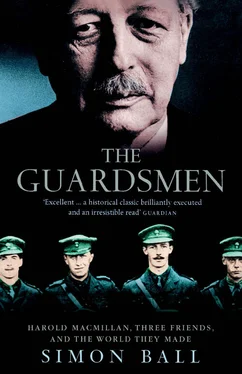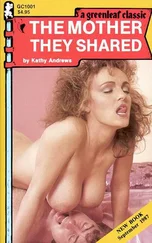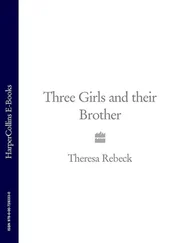The passing of the 1911 Parliament Act by the Liberals under the threat that the new king, George V, would be obliged to swamp the Lords with new peers, was a crushing blow. ‘Politics are beastly’, was Salisbury’s comment. Yet the Act guaranteed the House very considerable powers of delay while Liberal dependence on the Irish nationalists gave the peers a much greater excuse for using those powers than they had had for wrecking Liberal social legislation. Many peers were demoralized by their defeat, but Jim Salisbury was suffused in a glow of moral righteousness. Thereafter he never entirely lost his reputation as the keeper of the true flame of Conservatism. This made him a powerful man, though he was not always comfortable with the role. After the war he confided to his son that he found continual calls to save the Conservative party tiresome. One should remember, he told Bobbety, that parties came and went: principles and family were much more durable.
Bobbety Cranborne and Oliver Lyttelton were brought up at the apex of English social and political life. Politics was the constant backdrop to their childhood. To have Cabinet ministers, even prime ministers, in the house was a regular occurrence. From an early age they were aware of the fascination of politics, but also became youthfully cynical about it. Harry Crookshank and Harold Macmillan did not have such easy access to the political élite. Whereas Cranborne and Lyttelton could see the casualties of ambition – the burnt-out drunks like George Wyndham – ambition for the Crookshank and Macmillan families was entirely positive. It was also more impersonal and structured than for the aristocrats. From the start the course was clear: a forcing prep school, leading to a scholarship at Eton, leading in turn to the best colleges at Oxford. The perfectly respectable schools and colleges attended by their fathers simply would not do.
Although the Macmillan and Crookshank pères followed quite different professions, they had arrived at a remarkably similar social location by the time their sons were born. Harry Maule Crookshank was a doctor who had taken advantage of the expansion of the Empire in the last quarter of the nineteenth century to become an imperial administrator. He came from an old Ulster Protestant family of some distinction. The Crookshanks had arrived in Ulster as part of the seventeenth-century plantation of Scottish Protestants. The family took great pride in their most famous ancestor, William Crookshank, who had been one of the thirteen men who shut the gates of Derry in 1688. Since then the family could boast a brace of Ulster MPs. By the nineteenth century, however, Harry Maule Crookshank’s father and grandfather were making their way through soldiering. Both served as officers in line infantry regiments. Before the Cardwell reforms of the 1870s, officers in the British army purchased their rank. The Crookshanks thus had some funds behind them but could not rise to great heights. Harry Maule’s grandfather finished his career as a colonel. His father was a captain at the time of his early death while serving in India. While overseas Harry Maule was to send his son, Harry Comfort, for his initial education in Europe. This seems to have been part of a family pattern, for he himself received his early education in Boulogne before proceeding to a minor public school in Cheltenham. He was not destined for the army but instead studied medicine at University College Hospital, London. Although Crookshank had not joined the British army, he maintained his family’s military tradition. At the age of twenty-one he joined a Red Cross ambulance unit serving in the Franco-Prussian War of 1870–71. He repeated the experience later in the decade, joining a similar unit in the Russo-Turkish War of 1877–8. Crookshank’s contact with the Ottoman Empire brought about a fundamental change in his life. In 1882 British forces invaded Egypt to secure the recently completed Suez Canal. Following in the wake of the troops were British officials dedicated to the reform of the corrupt and ineffectual Egyptian state. Between 1883 and 1914 the real power in Egypt lay with the British, led by Lord Cromer.
Harry Maule Crookshank found himself an important cog in Cromer’s machine as director-general of the Egyptian Prisons Administration. Coming from an undistinguished background he was, at the age of thirty-four, relatively young for his responsibilities. In 1883 Crookshank faced a difficult situation. The British regarded the Egyptian prisons they found as utterly barbarous and in urgent need of reform. ‘No report,’ wrote the author of the initial survey of the system, ‘can convey the feeblest impression of the helpless misery of the prisoners, who live for months like wild beasts, without change of clothing, half-starved, ignorant of the fate of their families and bewailing their own.’ The problem of the prisons was part of a wider malaise in a justice system dominated ‘by venality, tyranny and personal vindictiveness’. 21 Yet British officials were being somewhat disingenuous in their criticism of the existing Egyptian prison system. The first concern for Cromer’s new administration was not reforming the prisons but bringing Egypt under its own firm control. To this end the 1880s were marked by a system akin to martial law. ‘Brigandage commissions’ ensured that as many potential troublemakers as possible were imprisoned. The combination of Egyptian inefficiency and British efficiency meant that there was massive overcrowding in the prisons: the gaols were at four times their nominal capacity. 22
Crookshank’s eventual reform programme followed four main lines: old prisons were improved and made sanitary, new prisons were built, prisoners were provided with proper food and clothing and a separate system of reformatories for young offenders was created. The work was long, arduous and not always rewarding. Since the criminal justice system formed the keystone of ‘indirect’ rule, its conduct was the matter of much debate, even conflict, among the British themselves. Crookshank became involved on the side of those pragmatists who believed that as much use as possible should be made of the existing Egyptian system, already reformed on French lines before the occupation. His chief opponent was Sir Benson Maxwell, a naturally disputatious man who served as first procureur-général and believed the system should be purged of any intermediary foreign taint and thoroughly anglicized on the colonial model. Money was always tight. As Lord Cromer recorded in 1907, the year Crookshank left Egypt, ‘These reforms took time: Even now the prison accommodation can scarcely be said to be adequate to meet all the requirements of the country.’ Crookshank’s successor as director-general, Charles Coles, who took over in 1897, had a police rather than a medical background. He implied that his predecessor had been too soft. It was arguable, Coles felt, ‘that prison life is not sufficiently deterrent, and that the swing of the pendulum has carried the Administration too far in the direction of humanity, if not of luxury’.
There is no record of how the Crookshanks felt when Cromer gave credit to Coles rather than Harry Maule as the man ‘to whom the credit of reforming this branch of the Public Service is mainly due’. It was not in Harry Maule’s nature to push himself forward. Indeed, Coles felt that Crookshank had been unnecessarily diffident in his dealings with Cromer. 23 It would seem even so that Crookshank’s performance in fourteen years of overseeing the prisons was rated highly enough for him to be given another important and far more agreeable job within the administration. In 1897 he was made controller of the Daira Sanieh Administration. The Daira estates were lands that the former ruler of Egypt, Ismail Pasha, had ‘contrived, generally by illicit and arbitrary methods, to accumulate in his own hands’. By the time the British arrived they amounted to over half a million acres. They were, however, very heavily mortgaged. When the profligate Ismail had got into severe financial difficulties he had borrowed £9.5 million on the security of the properties.
Читать дальше












